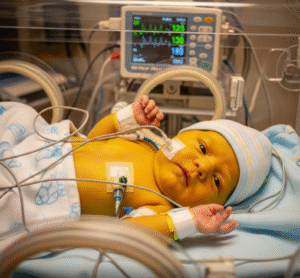Overview
Bacterial pneumonia is a serious infection of the lungs caused by bacteria, leading to inflammation of the air sacs (alveoli) that fill with fluid or pus. This condition can result in severe breathing difficulties, fever, and systemic infection. Bacterial pneumonia can affect individuals of all ages, but it is particularly dangerous for infants, older adults, and people with weakened immune systems. In Korea, hospitals and medical centers provide advanced diagnostic tools, modern antibiotics, and intensive respiratory care to manage bacterial pneumonia effectively. The country’s integrated healthcare system allows for rapid detection, accurate bacterial identification, and targeted treatment, reducing complications and improving recovery rates.
What is Bacterial Pneumonia?
Bacterial pneumonia occurs when pathogenic bacteria infect the lungs, causing inflammation, fluid accumulation, and impaired oxygen exchange. Common bacteria responsible include Streptococcus pneumoniae (pneumococcus), Haemophilus influenzae, Staphylococcus aureus, and Klebsiella pneumoniae. The infection can affect one lobe of the lung (lobar pneumonia) or multiple areas (bronchopneumonia). If untreated, bacterial pneumonia can progress to severe complications like sepsis, lung abscesses, or respiratory failure. In Korea, patients have access to specialized pulmonary care units and advanced imaging technologies for accurate diagnosis and effective treatment.
Symptoms
The symptoms of bacterial pneumonia can develop quickly and vary in severity:
- High fever and chills
- Cough producing yellow, green, or bloody mucus
- Shortness of breath and rapid breathing
- Chest pain, often worsened by coughing or deep breathing
- Fatigue and weakness
- Sweating and clammy skin
- Confusion, especially in older adults
- Nausea, vomiting, or diarrhea in some cases
Causes
Bacterial pneumonia develops when bacteria invade the lungs, overwhelming the body’s natural defenses. Common causes include:
- Inhalation of airborne bacteria – from close contact with infected individuals
- Aspiration of oral or stomach contents – particularly in people with swallowing difficulties
- Bloodstream infections – spreading bacteria from other infected areas
- Pre-existing lung conditions – such as chronic obstructive pulmonary disease (COPD) or bronchiectasis
- Recent viral infections – such as influenza, which weaken the immune system and make lungs more susceptible
Risk Factors
Several factors increase susceptibility to bacterial pneumonia:
- Age under 2 or over 65
- Smoking, which impairs lung function
- Chronic illnesses such as diabetes, heart disease, or kidney disease
- Weakened immune system due to HIV, chemotherapy, or medications
- Hospitalization or prolonged bed rest
- Exposure to polluted environments or occupational hazards
- Recent respiratory infections or influenza
Complications
If bacterial pneumonia is untreated or not properly managed, it can lead to serious complications:
- Respiratory failure requiring mechanical ventilation
- Sepsis or septic shock
- Lung abscesses
- Pleural effusion (fluid accumulation around the lungs)
- Chronic lung damage or scarring
- Death, especially in vulnerable populations
Prevention
Preventive measures for bacterial pneumonia include:
- Vaccination – pneumococcal vaccines and Hib vaccines are available in Korea
- Regular hand hygiene and avoiding close contact with infected individuals
- Avoid smoking and exposure to secondhand smoke
- Maintain a healthy lifestyle to strengthen the immune system
- Prompt treatment of upper respiratory infections
- Practicing proper cough etiquette to reduce airborne transmission
Treatment Options in Korea
1. Diagnosis
Accurate and rapid diagnosis is crucial for effective treatment. Korean hospitals use:
- Chest X-rays – to identify lung infiltrates and assess severity
- CT scans – for detailed imaging in complicated cases
- Blood tests – to detect infection markers and assess immune response
- Sputum culture – to identify the causative bacteria and guide antibiotic therapy
- Pulse oximetry and arterial blood gas tests – to evaluate oxygen levels in the blood
2. Medical Treatments
- Antibiotics – the cornerstone of treatment, chosen based on the identified bacterial strain
- Intravenous antibiotics – for severe pneumonia requiring hospital admission
- Oral antibiotics – for mild to moderate cases that can be treated at home
- Antipyretics and analgesics – to manage fever and chest pain
- Oxygen therapy – for patients experiencing hypoxia
3. Supportive Care
Korean hospitals provide comprehensive supportive care to improve outcomes:
- Hydration therapy to maintain fluid balance
- Respiratory physiotherapy to improve lung function
- Monitoring in intensive care units for severe or high-risk patients
- Nutritional support to aid recovery and immune response
4. Management of Severe Cases
- Mechanical ventilation for respiratory failure
- Drainage of pleural effusions or abscesses if present
- Combination antibiotic therapy for multi-drug resistant bacteria
- Close monitoring of heart and kidney function to prevent organ complications
5. Rehabilitation and Follow-Up
After acute recovery, follow-up care focuses on restoring lung health and preventing recurrence:
- Pulmonary rehabilitation programs
- Regular imaging and checkups to monitor lung function
- Vaccination updates to prevent future bacterial pneumonia
- Lifestyle counseling, including smoking cessation and exercise programs
6. Medical Tourism for Pneumonia Care in Korea
International patients choose Korea for bacterial pneumonia treatment because of:
- Rapid diagnostic capabilities and timely intervention
- Access to highly skilled pulmonologists and infectious disease specialists
- Advanced ICU care and modern hospital infrastructure
- Personalized care and multilingual support for global patients













